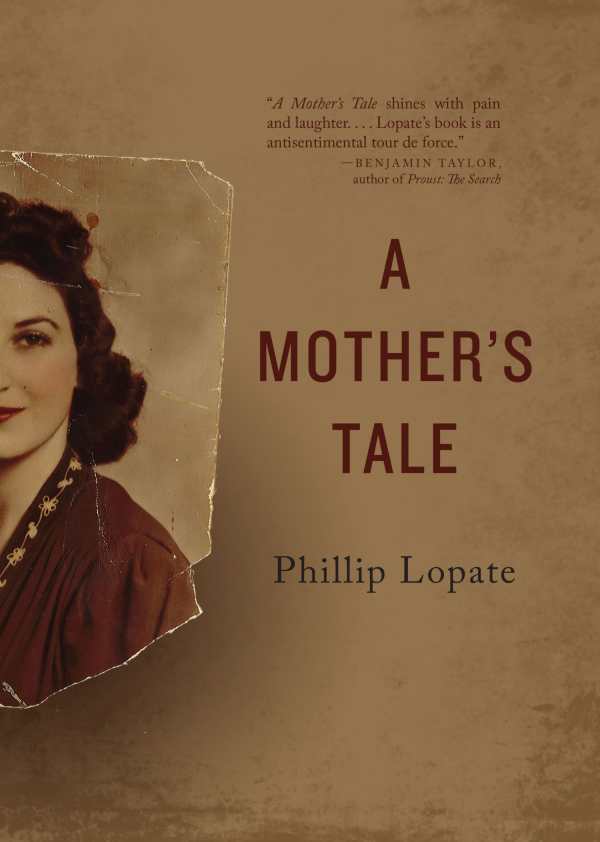A Mother's Tale
- 2017 INDIES Winner
- Honorable Mention, Biography (Adult Nonfiction)
Lopate’s stories of his mother paint a rather bleak portrait of the dark side of the American dream.
Phillip Lopate’s A Mother’s Tale reveals the author’s complex relationship with his mother, Frances, through essays that show vividly her harsh life and struggles to overcome economic and social obstacles confronted by most women whose lives spanned the twentieth century.
Lopate directs Columbia University’s nonfiction MFA program and has written sixteen previous books, and this one further burnishes his reputation as a highly regarded essayist. These essays are based on tape recordings with his mother in 1984, when Frances was sixty-six and Phillip was forty-one. What makes the dialogue memorable is the explicit, no-holds-barred banter between the two. Francis graphically describes her unfulfilling sex life with her husband, Albert, and details her numerous affairs, not usually shared between a mother and son.
This is not a happy, feel-good memoir, as son and mother grapple to come to terms with their estrangement; before Frances died in 2000, she, Phillip, and Albert each attempted suicide. Readers will empathize with Frances, whose parents died before she was ten. One of eleven children, she was shuttled among unloving siblings. Frances, always career oriented, found some success as a beautician and in running two candy stores and photography studios, and she found joy in her true love—show business—mostly touring in plays and even making a few TV commercials.
The dialogue, recreated from thirty-year-old tapes, is fresh and gripping but, at times, difficult to follow because the speaker is not identified. Lopate claims that the essays are discussions among three people: Frances and the author as both a middle-age man and a seventy-three-year-old man, his age when he wrote the book. Readers might disagree with Lopate’s premise that the attitudes of men or women at these ages vary and result in a different interpretation of the subject.
Lopate’s stories of his mother and her relationship to the author and his family, which paint a rather bleak portrait of the dark side of the American dream, will appeal to devotees of coming-of-age memoirs.
Reviewed by
Karl Helicher
Disclosure: This article is not an endorsement, but a review. The publisher of this book provided free copies of the book to have their book reviewed by a professional reviewer. No fee was paid by the publisher for this review. Foreword Reviews only recommends books that we love. Foreword Magazine, Inc. is disclosing this in accordance with the Federal Trade Commission’s 16 CFR, Part 255.

